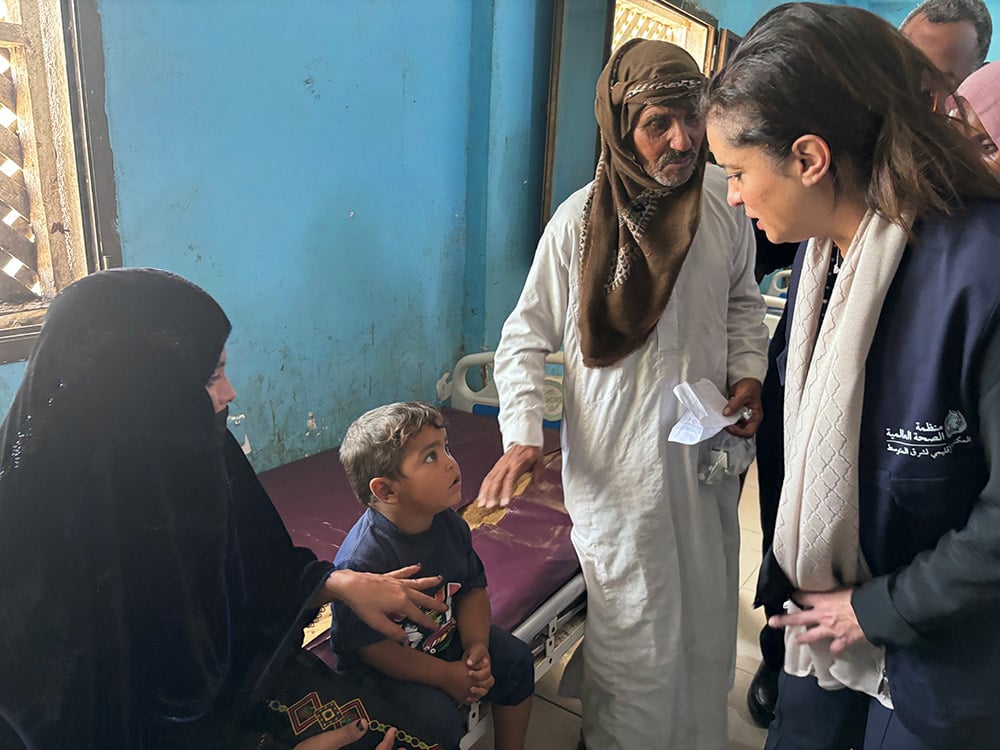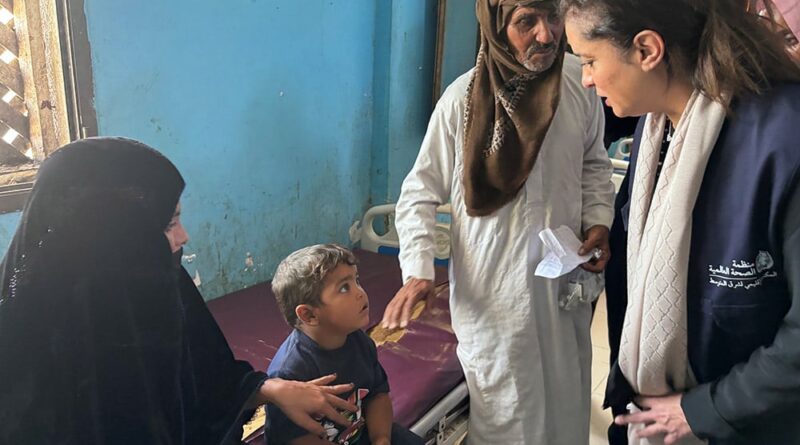Regional Director statement on Sudan

15 March 2024 I have just returned from Sudan, my first mission to an emergency country in the WHO Eastern Mediterranean Region since I took office 5 weeks ago.
I saw first-hand the devastation that decades of fragility, and nearly a year of brutal war, have wreaked on the country. “We lost many things this year that we will never be able to get back,” one Sudanese woman told me.
I also learned about the immense challenges facing our humanitarian response as we work to reach all people in Sudan with life-saving aid.
Sudan is currently facing the world’s largest displacement crisis. Almost 8.5 million people (including almost 2 million who have fled to neighbouring countries) have been forcibly displaced and face uncertainty, vulnerability, and immense challenges.
Most internally displaced people are living among host communities, reflecting the sense of generosity and solidarity that the Sudanese people are known for.
But this situation has resulted in soaring demands for food, safe water and sanitation, and access to health care. And attacks on health care during the escalation of hostilities have left more than 25% of all hospitals nonfunctional and the main national laboratory occupied by fighters.
In Port Sudan, health facilities are receiving between 2 and 4 times the number of patients they are used to managing. Strengthening the resilience of Sudan’s health system includes ensuring that spillover from neighbouring states can be absorbed without a negative impact on the host communities
